NEWS & BLOG
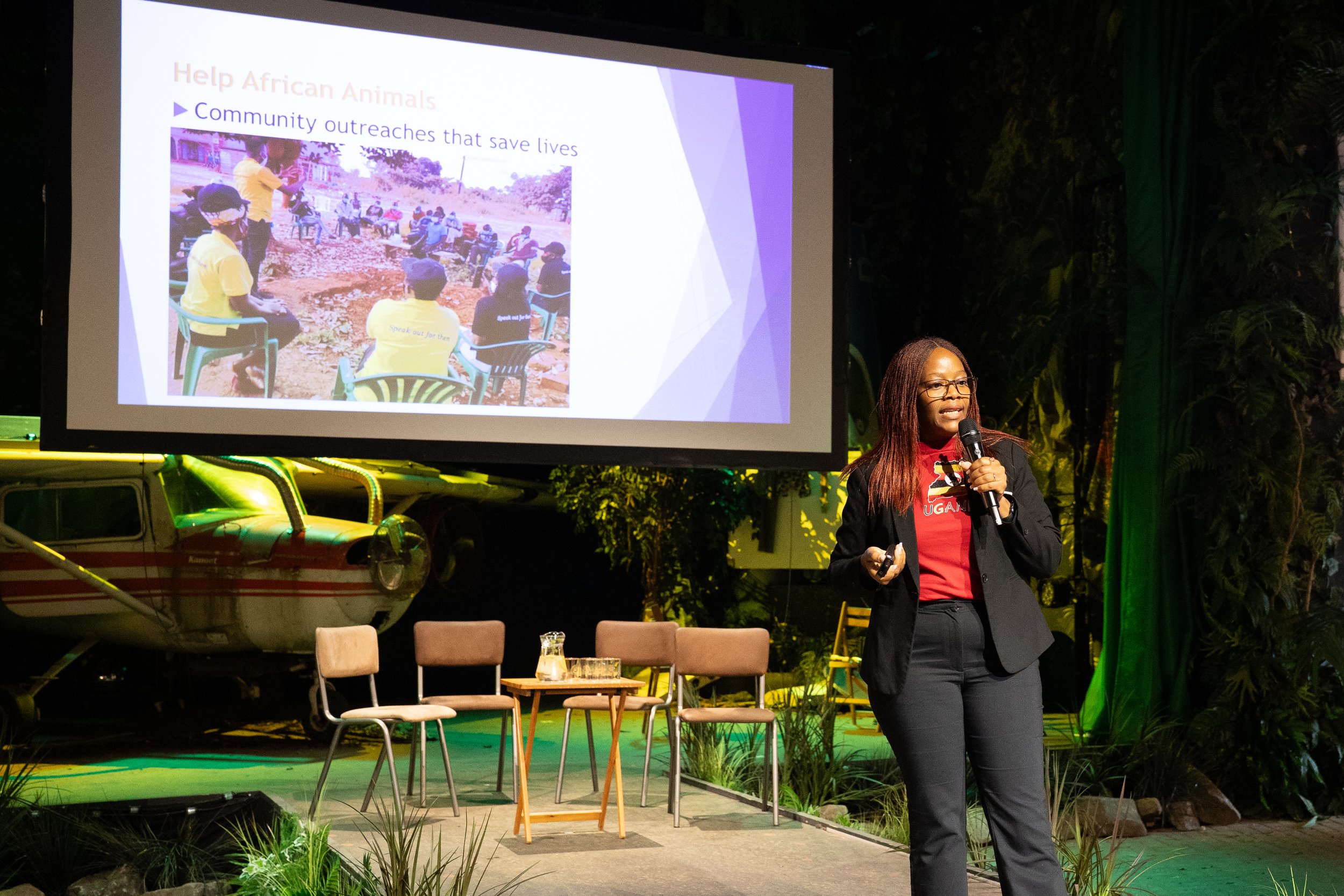
Justice for Wildlife: Bringing the Law to the Frontline of Conservation
Justice for the Voiceless: Gladys Kamasanyu on Strengthening Wildlife Law - At the Nature FIRST Conference, Ugandan Chief Magistrate Gladys Kamasanyu delivered a powerful keynote on wildlife justice. From founding Africa’s only Wildlife Court to promoting prevention through community outreach and legal reform, she makes one thing clear: protecting wildlife means protecting people too.


Beyond the Final Conference: Applying What Works, Building What’s Next
Reflections from the Nature FIRST Conference 2025: Held at Ouwehands Dierenpark, the final Nature FIRST Conference brought together conservationists, tech experts, and forensic specialists to explore field-tested tools for biodiversity protection. From digital twins to wildlife crime kits, the two-day event showcased practical solutions and sparked new partnerships for lasting impact beyond the project’s end.
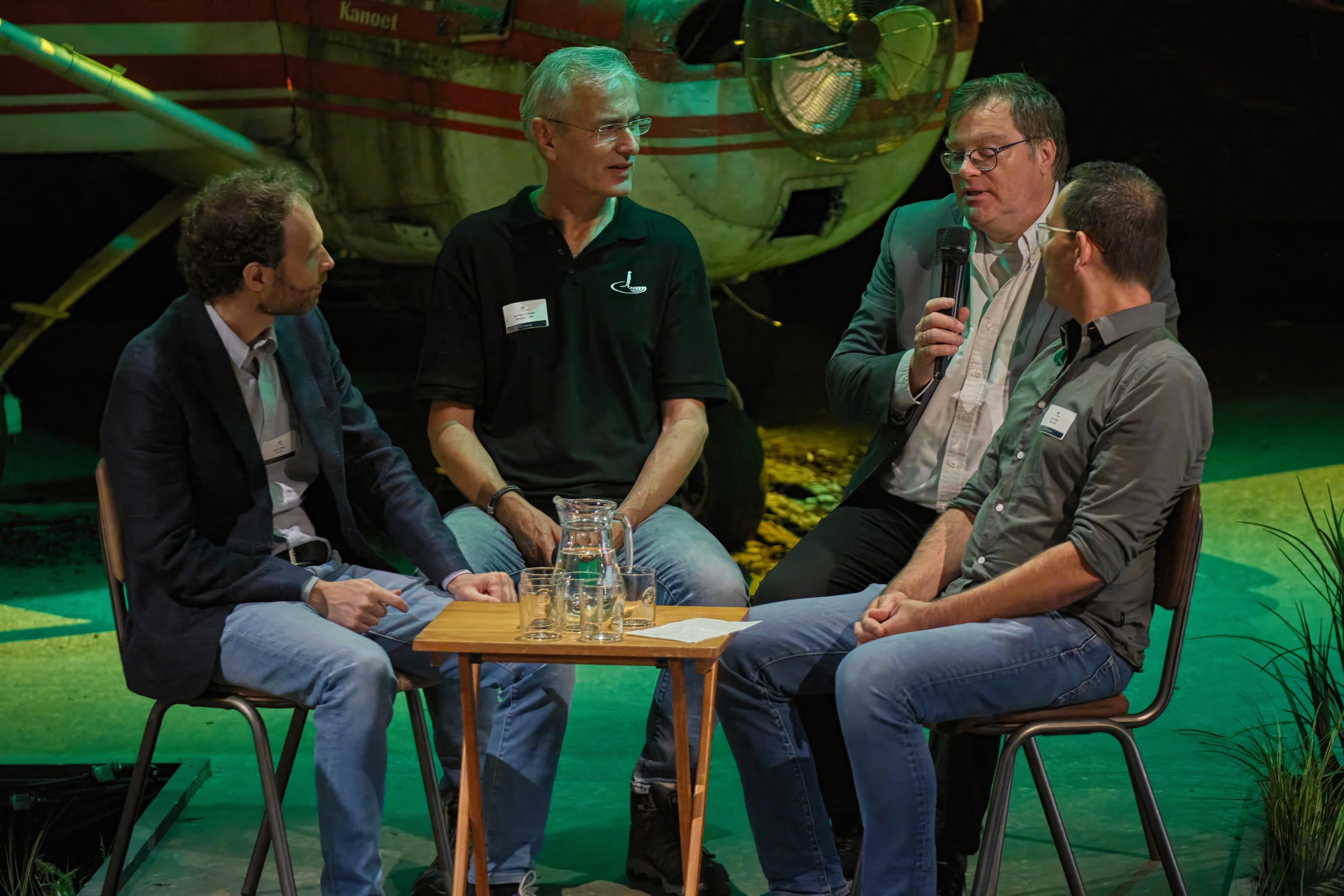
From Tools to Action: Scaling Conservation for Real-World Impact
How do we move from brilliant conservation tools to actual change on the ground?
At the Nature FIRST Final Conference, the panel “From Tools to Action – Scaling Conservation Solutions for Global Impact” tackled one of the toughest questions in nature conservation: why do so many great innovations stay stuck in pilot mode?
From high-tech habitat monitoring to community-driven restoration, panellists unpacked the real-world challenges of scaling impact including funding gaps, slow procurement systems, and the critical need to design for non-technical users like rangers and farmers.
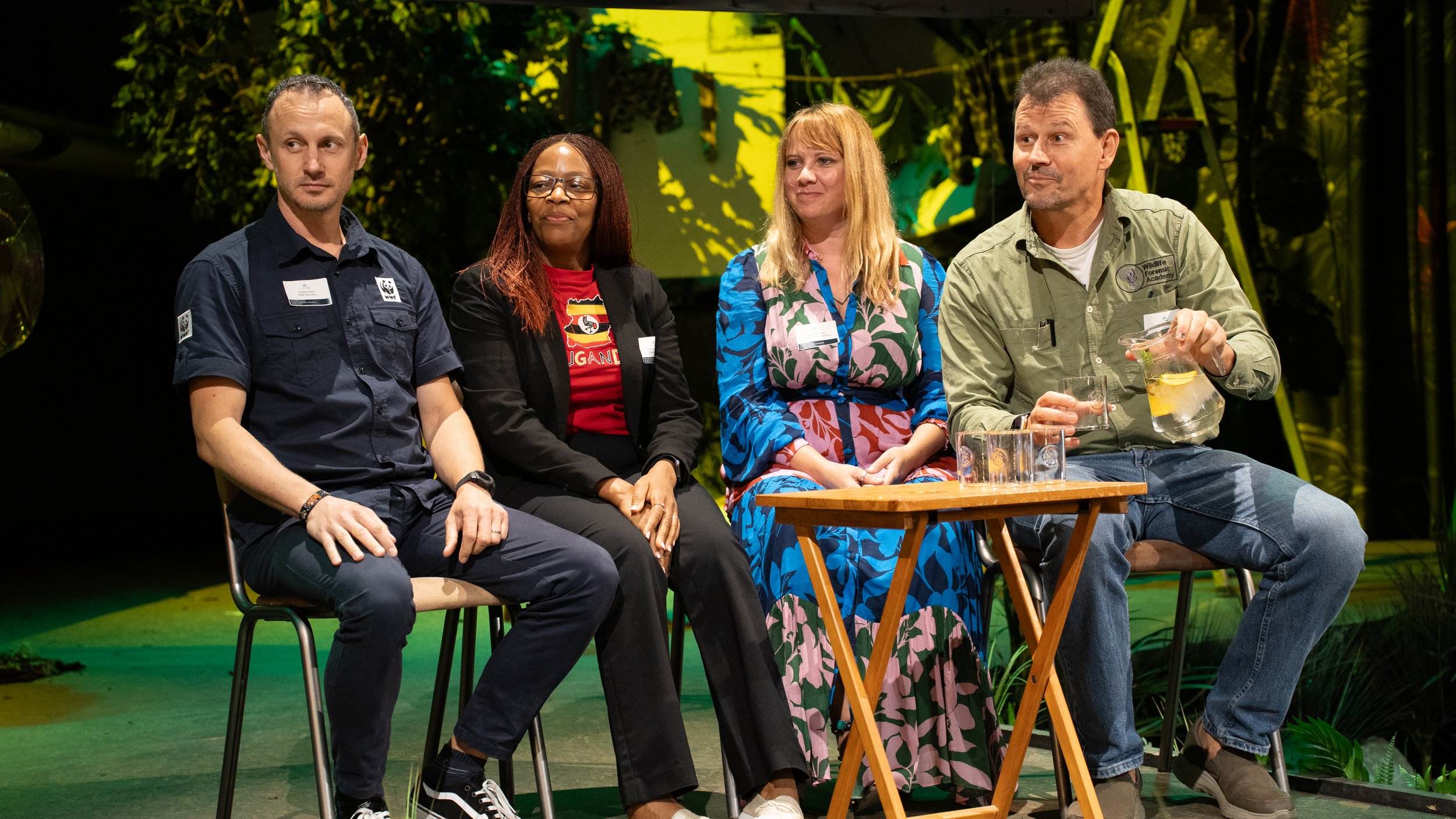
From Conflict to Justice: Tackling Wildlife Crime at Every Step
What really drives wildlife crime and how can we stop it before it starts?
At first glance, wildlife crime might look like a single illegal act. But beneath the surface are stories of broken trust, frustrated communities, and preventable loss both human and ecological.
At the Nature FIRST Final Conference, the panel “Wildlife Crimes: From Cause to Court” uncovered how everyday tensions between people and animals can escalate into serious offences; and what it takes to intervene before it’s too late. From poison recipes shared online to courtroom decisions balancing justice and survival, the panel shed light on a side of conservation few get to see.
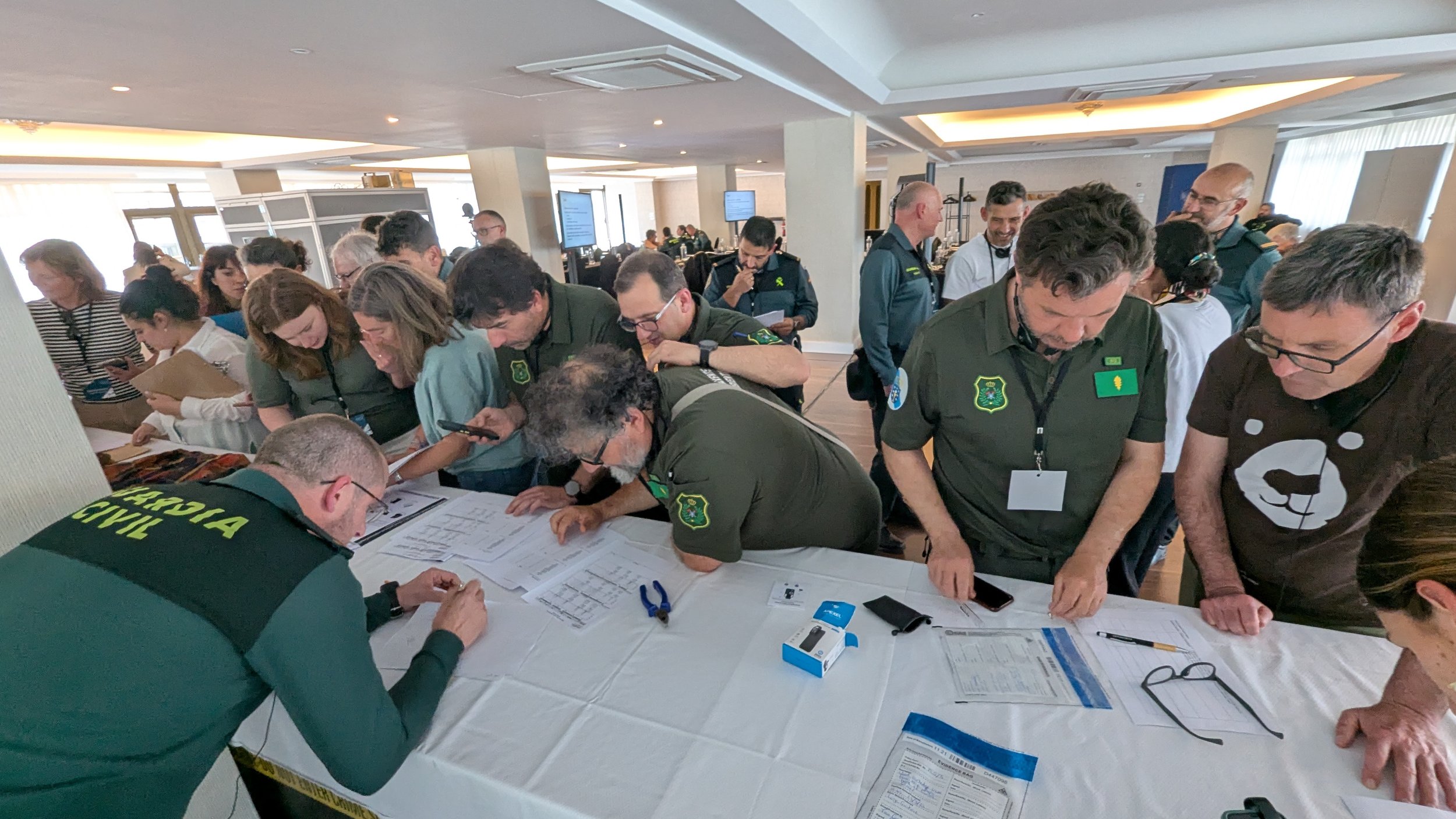





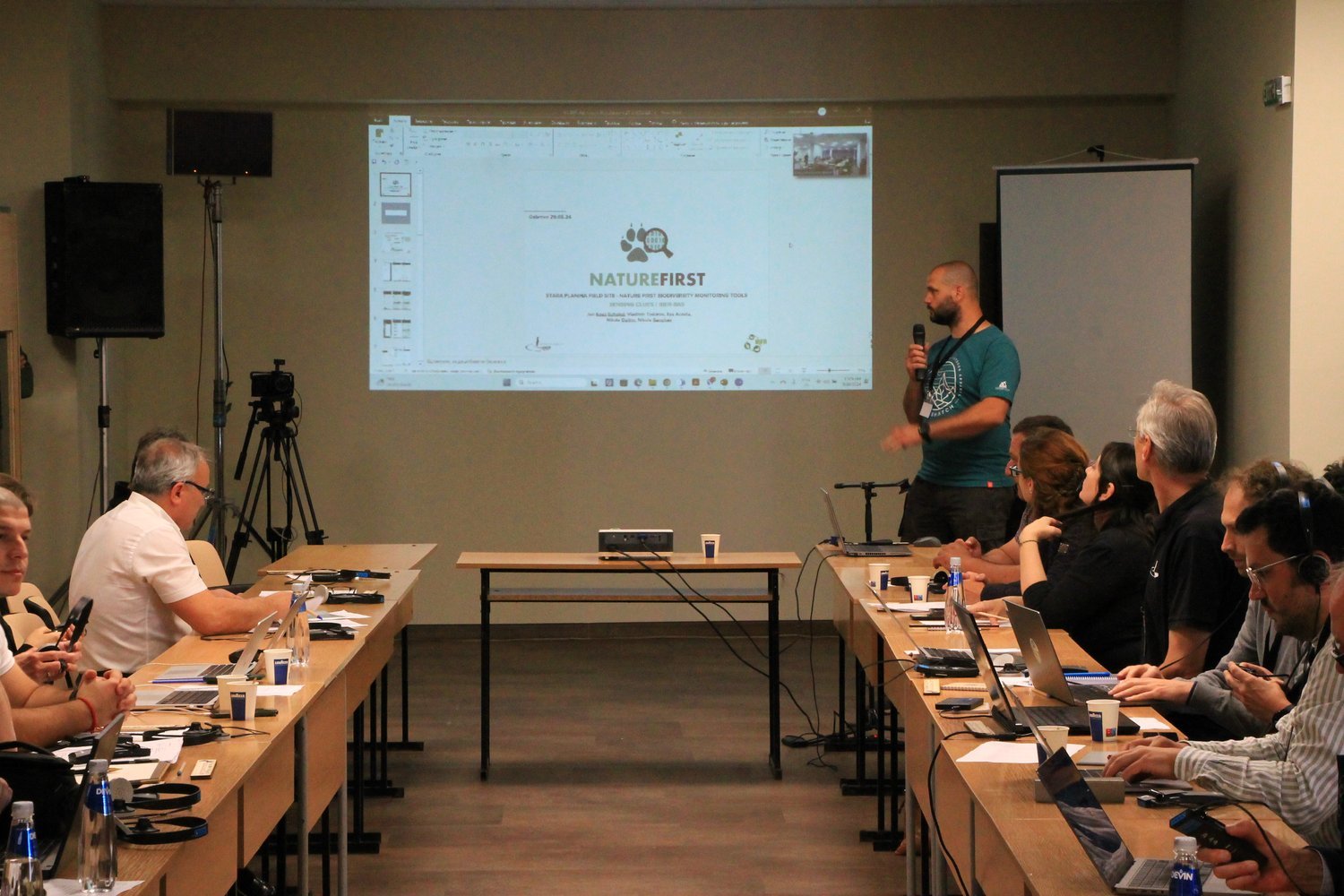

WILDLIFE FORENSIC KIT COMPETITION
We are thrilled to introduce the Wildlife CSI-Kit Design Competition, where students from universities worldwide will craft innovative prototypes for gathering evidence wildlife crime scenes.
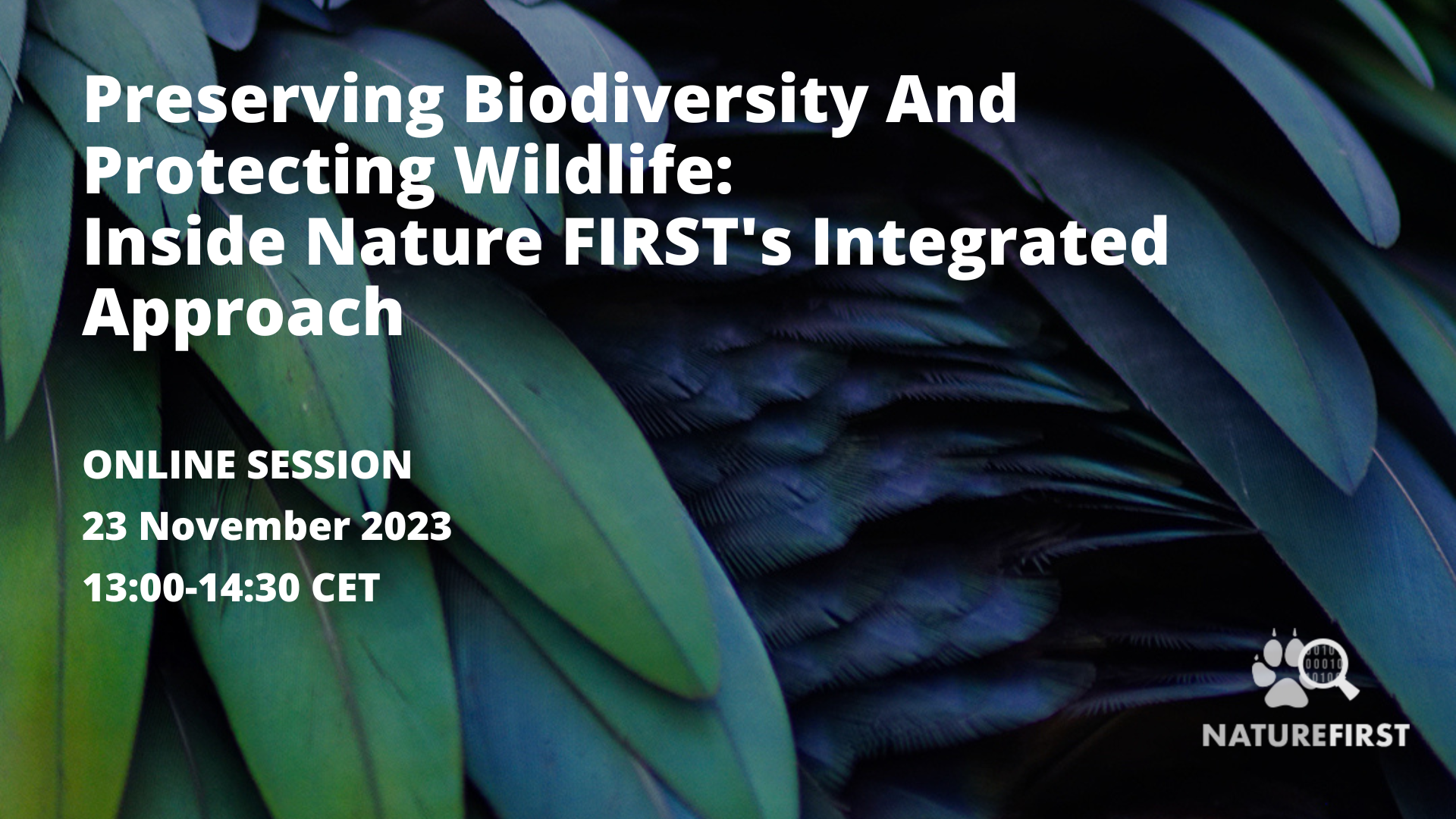
PRESERVING BIODIVERSITY AND PROTECTING WILDLIFE: INSIDE NATURE FIRST’S INTEGRATED APPROACH
On November 23rd, Nature FIRST had the opportunity to explore our cutting-edge monitoring tools; dive into a compelling case study of human-wildlife interaction in Bulgaria (specifically focused on bears); examine the crucial role of forensics in combating poaching; and receive feedback from key stakeholders. If you weren’t able to tune in for the demo, you can still gain valuable insights by watching the recording and downloading the slides. If you need a quick refresher, join us as we do an overview of what was discussed.

WHAT ARE TRANSBOUNDARY BIOSPHERE AREAS AND WHY ARE THEY IMPORTANT?
Nature FIRST is a data-driven project funded by the European Commission with the goal of preserving biodiversity in Europe and beyond. As part of the project, we are testing preventive solutions in various field sites and one of them is the Maramures Transboundary Area, located in the Carpathian Mountains in both Romania and Ukraine. But why are transboundary biosphere areas important for biodiversity in Europe? What does this mean in terms of policy making? And what does it mean for the Nature FIRST project? Join us as we delve into the answers to the questions and explore the importance of transboundary biosphere areas.

NATURE FIRST WORKSHOP IN ROMANIA: EXPLORING FORENSIC INTELLIGENCE FOR NATURE CONSERVATION
We are thrilled to share insights from the Nature FIRST Field Site Workshop in Romania, which took place from October 2nd to October 6th, 2023. Hosted in Bucharest and Tulcea, this workshop brought together key stakeholders in the Romanian Environmental, Agriculture, and Fishing sectors to explore and learn more about the innovative Nature FIRST project. Here's a glimpse of the events that unfolded during this informative and impactful week.

CONSERVING NATURE THROUGH FORENSIC SCIENCE: AN INTERVIEW WITH DR. CLAIRE GWINNETT
What are the differences between human forensics and wildlife forensics? What are some of the motives behind wildlife crimes? How prevalent are they worldwide, and how effective is legislation? And what is the role of wildlife forensics in nature conservation and specifically in the Nature FIRST project? Join us for an interview with Dr. Claire Gwinnett, a professor of forensic environmental science at Staffordshire University, as we delve into the answers to these questions, as well as her journey into this field and her aspirations for Nature FIRST’s impact on wildlife crime investigations.

DIGITAL TWINS FOR ECOLOGY AND NATURE CONSERVATION: AN INTERVIEW WITH ANNA DAVISON
The Nature FIRST project makes use of digital twins to create model-driven, continuous ecosystem monitoring beyond simple species counts. These digital twins serve as a means for learning, improving monitoring models, and translating environmental observations into actionable information for site managers and policymakers. But what are some common misconceptions around the concept of a digital twin? What are some challenges they face, and how can they assist decision-makers in safeguarding our natural ecosystems? And what is their role in the Nature FIRST project? Join us for an interview with Anna Davison, a PhD Candidate at Wageningen University & Research, as she answers these questions and more.

ECOSYSTEM BASEMAPS AND HOW THEY HELP NATURE CONSERVATION
Humanity has been collecting terabytes of environmental data. However, without effective applications, their value for protected area managers remains limited. With this in mind, the Nature FIRST project is developing tools that allow one to access available environmental data, analyse and present it in an integrated and user-friendly way. This blog post delves into one of these tools: auto-generated ecosystem basemaps. Join us as we explore their main characteristics, applications and how basemaps can be useful for managers of protected nature sites, like the ones in the Natura 2000 network.

KEEP EARTH’S BIODIVERSITY THRIVING: KEY BIODIVERSITY AREA PROGRAM
The Key Biodiversity Area (KBA) program is a global effort dedicated to identifying, monitoring, and preserving areas that are essential to biodiversity conservation. The programme aims to draw attention to the significance of natural sites that support an abundance of species and host unique ecosystems, with the goal of ensuring biodiversity protection now and in the future. But how are these areas identified, and why are they important? And how do they relate to the Nature FIRST project? Join us as we explore these questions and more.
